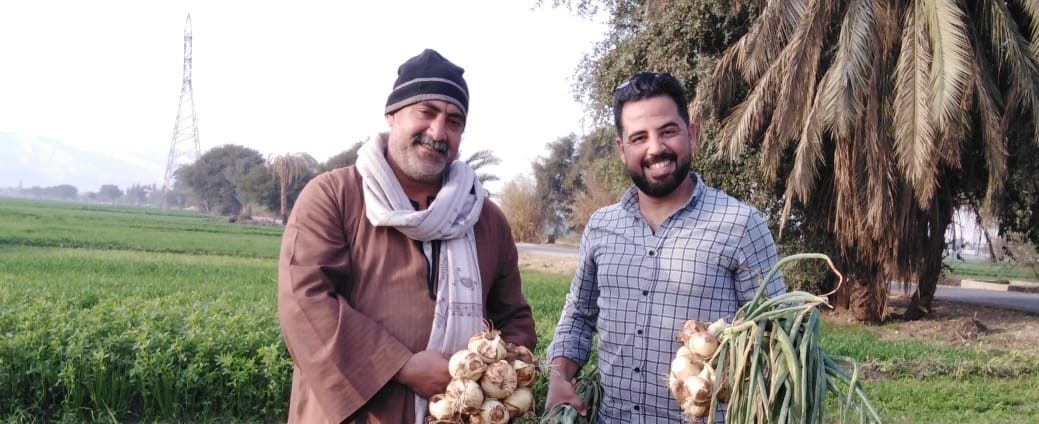USAID Egypt Food Security and Agribusiness Support Project Links Local Onion Farmers to an International Exporter
The Feed the Future Egypt Food Security and Agribusiness Support (FAS) project supported the Negoaa Mazen agriculture cooperative, based in Sohag governorate, Egypt, to complete an export contract with the ELI company, an Albanian exporter, in which the cooperative sold 45 metric tons of high-quality onions to ELI. This was the first time an international exporter directly contracted a cooperative without its own packhouse facilities. This success demonstrates the potential a well-managed cooperative has for negotiating and organizing member farmers to deliver on contracts. The elimination of middlemen in this exchange both increased prices available to farmers, and improved information exchange by creating a direct link between farmers and an export market actor.
The onions were sold at a competitive price of $50 (5,000 ALL) per metric ton, amounting to a total transaction value of $2,025 (225,000 ALL), which is about 10% higher than would otherwise have been available to the farmers for onions of similar quality.
This successful contract between the Negoaa Mazen agriculture cooperative and ELI is part of the FAS project’s overall objective to increase smallholder farmer incomes by facilitating opportunities for farmers to sell horticultural crops to export markets. One strategy the project follows for achieving this is to build and encourage the formation of new relationships through trade show participation. At the Fruit Logistica Trade Fair in Berlin, Germany, in February 2019, the FAS project had the opportunity to connect with numerous international exporters, such as ELI, and encourage them to connect with cooperatives and associations with whom the project works, such as Negoaa Mazen. By helping to forge relationships between the buyer and local suppliers, the FAS project empowered the Negoaa Mazen Cooperative to negotiate sales terms and to contract neighboring groups to help them meet buyer demand.
The Negoaa Mazen Cooperative was established in 1962 in Sohag governorate. It offers agriculture and marketing services to around 2,000 smallholder farmer members, who collectively own 2,000 feddans of land, about 200 feddans of which are owned by women. Crops include green beans, wheat, onion, sugar cane, and clover. The FAS project provided technical support and regular monitoring for cooperative members to help improve their crop yields and ensure that their products would meet export quality standards. Training and technical assistance included fertilization programs, irrigation, integrated pest management, and best practices for harvesting. The project also advised farmers on good input supplies to improve product quality and increase their productivity.
In addition to providing the cooperative with technical support on production, the FAS project built Negoaa Mazen Cooperative’s capacity to both maintain high standards of product quality in compliance with exporter requirements, as well as to negotiate suitable contract terms. The FAS project also worked with both parties to help them comply with domestic regulations and manage logistics, such as connecting with a local shipping company to export the onions.
“We gained experience dealing with the international market, became aware of international standards required by this exporter, and were trained on the proper handling of onion for export by the project,” said farmer Ahmed Saleh, chairman of Negoaa Mazen Cooperative.


